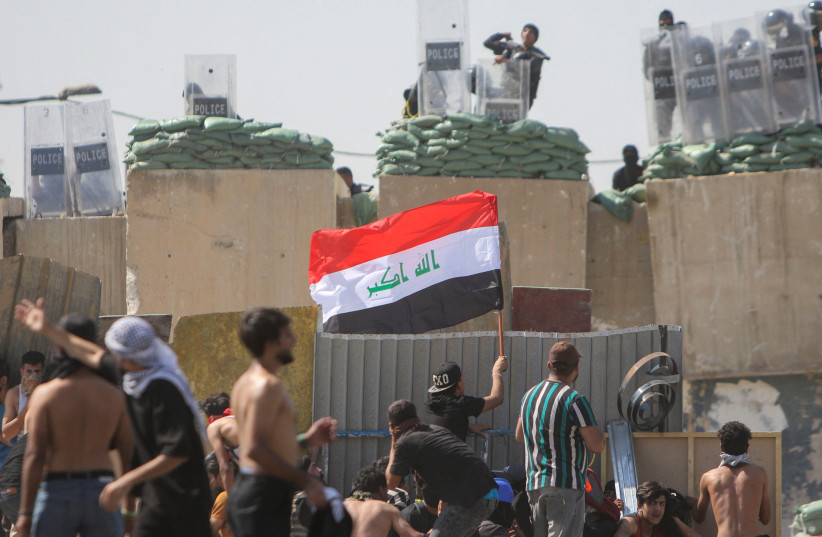Iraqi parliament approves unpopular election law amendments

Legislators rejecting amendments to the law tried to block the start of the session by shouting and chanting close to the speaker podium.
Iraq's parliament approved on Monday amendments to the elections law, a move that has angered independent lawmakers and small parties who say the new legislation could weaken their chances.
The amendments abandon an election law under which the last parliamentary election was held in 2021, in response to pressure from anti-government protests demanding fairer election law and the departure of Iraq's ruling elite.
More than 560 people, mostly unarmed demonstrators but also members of the security forces, have been killed since a wave of popular unrest began in October 2019, demanding an overhaul of a political system seen by many as profoundly corrupt.
The new amendments' intended consequence
The new amendments were pushed by a coalition of Shi’ite parties, known as the Coordination Framework, which is an alliance of Iran-aligned factions that control the majority of parliament, lawmakers said.
In Iraq's last general election, populist Shi'ite Muslim cleric Moqtada al-Sadr's party was the biggest winner with 73 seats, but Sadr ordered his bloc to resign after months of stalemate over forming a new government.
Sadr's decision to depart parliament and politics strengthened the power of rival Iran-backed politicians in the assembly.
"Large parties controlling parliament plan to consolidate their powers and remove independents. They want to smash us," said independent lawmaker Hadi al-Salami.
Legislators rejecting amendments to the law tried to block the start of the session by shouting and chanting close to the speaker podium.
"No, no to the new law. We reject confiscating the real democracy," screamed one lawmaker while blowing a referee’s whistle in protest at holding the session.
Speaker of parliament Mohammed al-Halbousi ordered security forces to remove lawmakers who tried to stop the vote outside the session hall, lawmakers said.
Parties voting in favor of amending the law defended their position and said democratic procedures were observed in legislating new law and that it was passed by majority.
"Parliament voted for the new law after reaching a consensus among most political parties and no need for the fuss," said Shi'ite lawmaker Arif al-Hamami.
Opposition parties and analysts warned that the parliament vote could trigger protests and revive unrest in Iraq.
"Changing the law to make it serve the interests of larger political parties is a clear move to control both government and parliament and many Iraqis wont like it. Protests could return back soon," said Baghdad-based political advisor Ahmed Younis.
New election law will be applied in the next national election, for which no date has been set yet, and for the provincial election which parliament demanded to be held on Nov. 6.
Jerusalem Post Store
`; document.getElementById("linkPremium").innerHTML = cont; var divWithLink = document.getElementById("premium-link"); if (divWithLink !== null && divWithLink !== 'undefined') { divWithLink.style.border = "solid 1px #cb0f3e"; divWithLink.style.textAlign = "center"; divWithLink.style.marginBottom = "15px"; divWithLink.style.marginTop = "15px"; divWithLink.style.width = "100%"; divWithLink.style.backgroundColor = "#122952"; divWithLink.style.color = "#ffffff"; divWithLink.style.lineHeight = "1.5"; } } (function (v, i) { });

